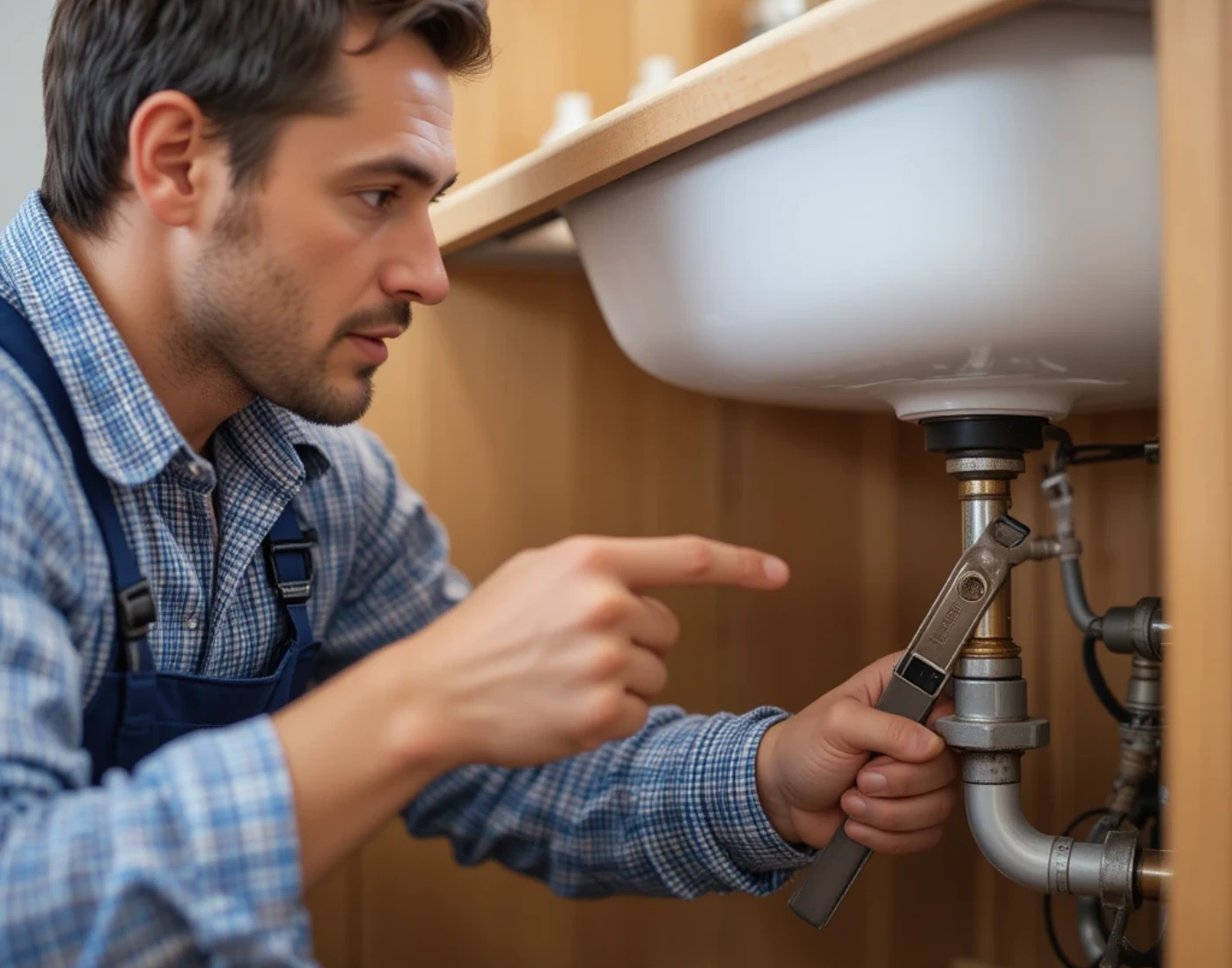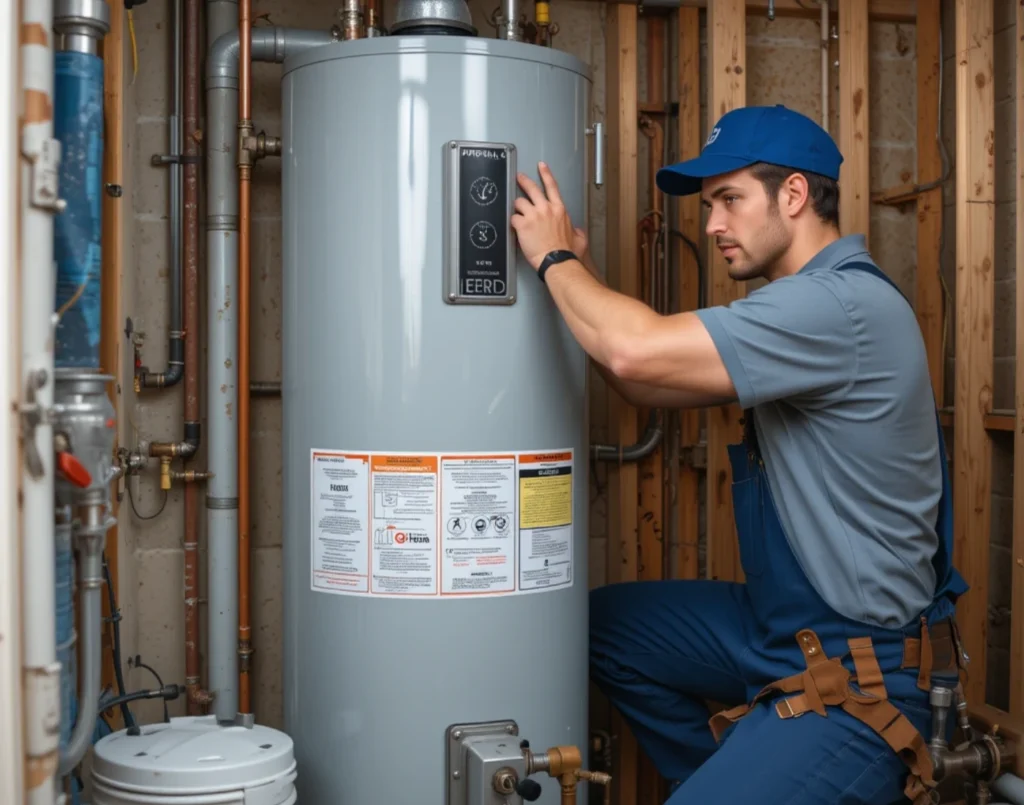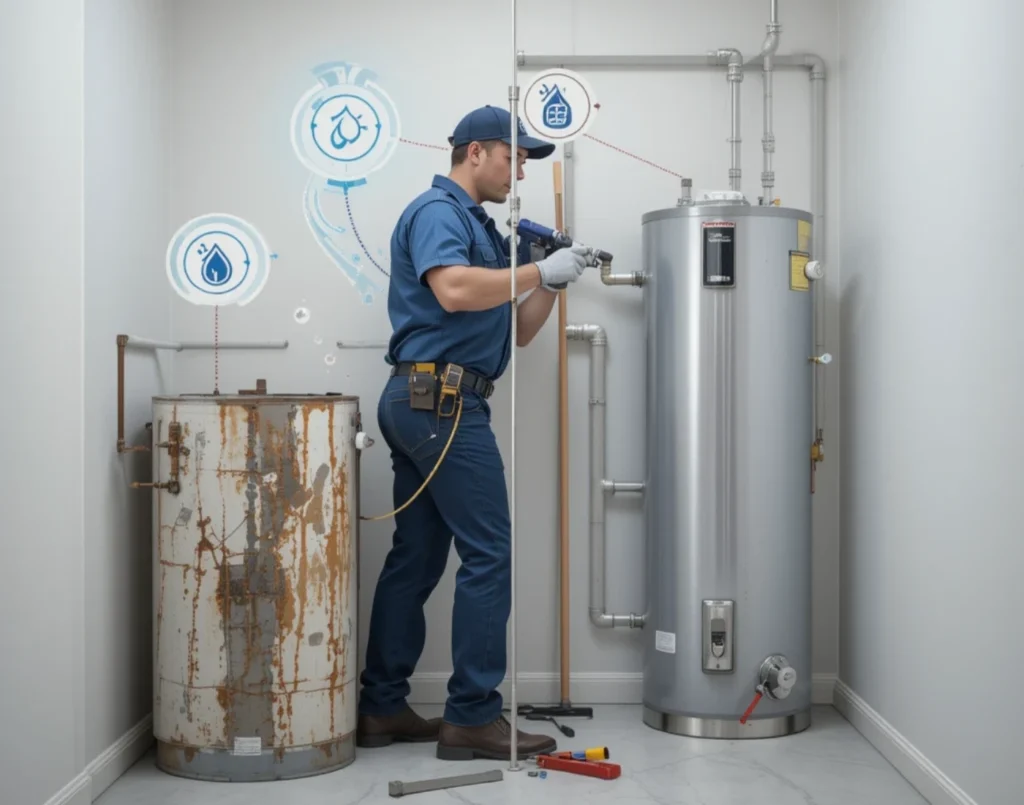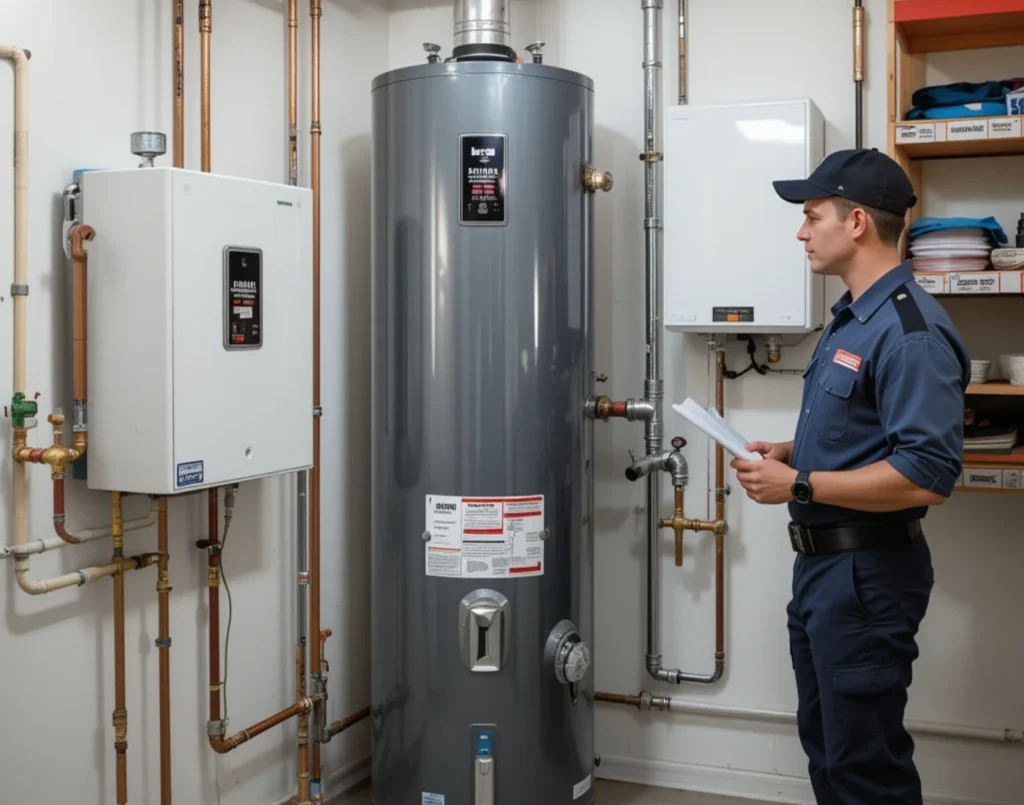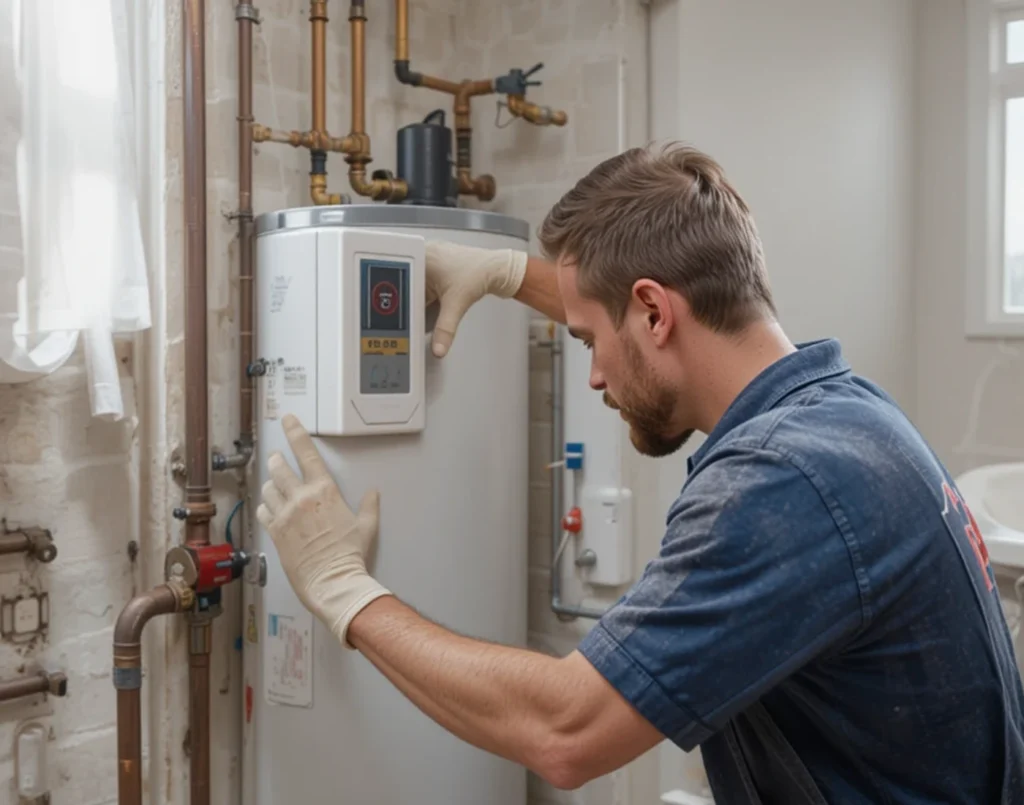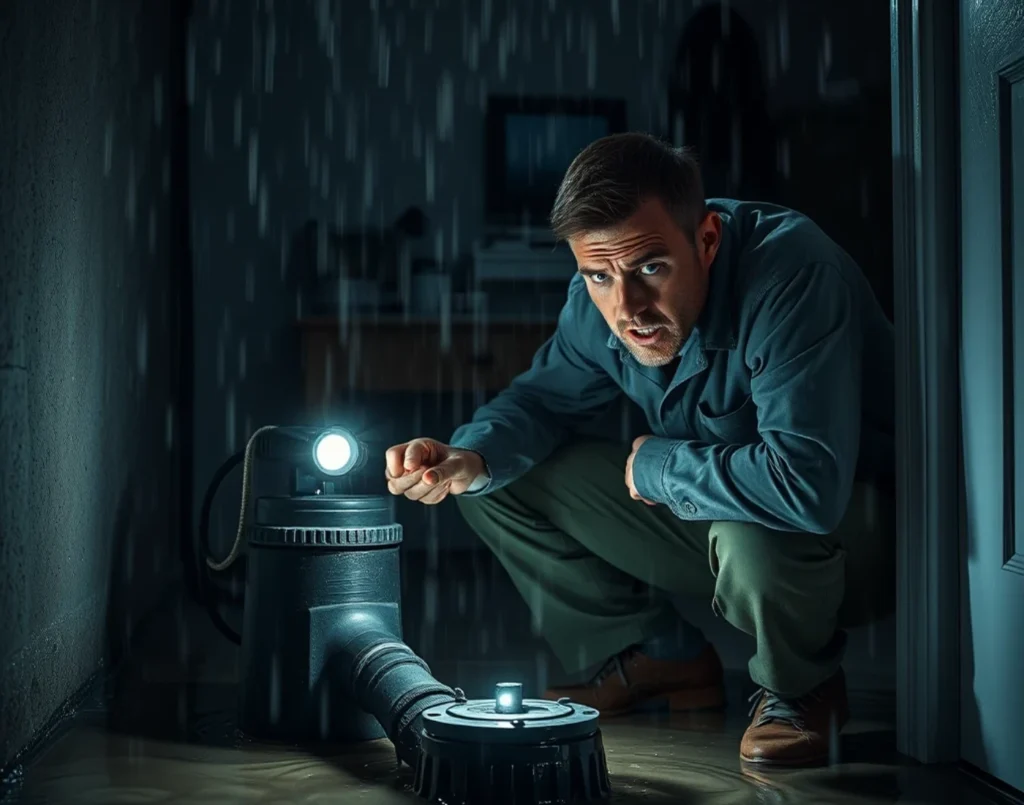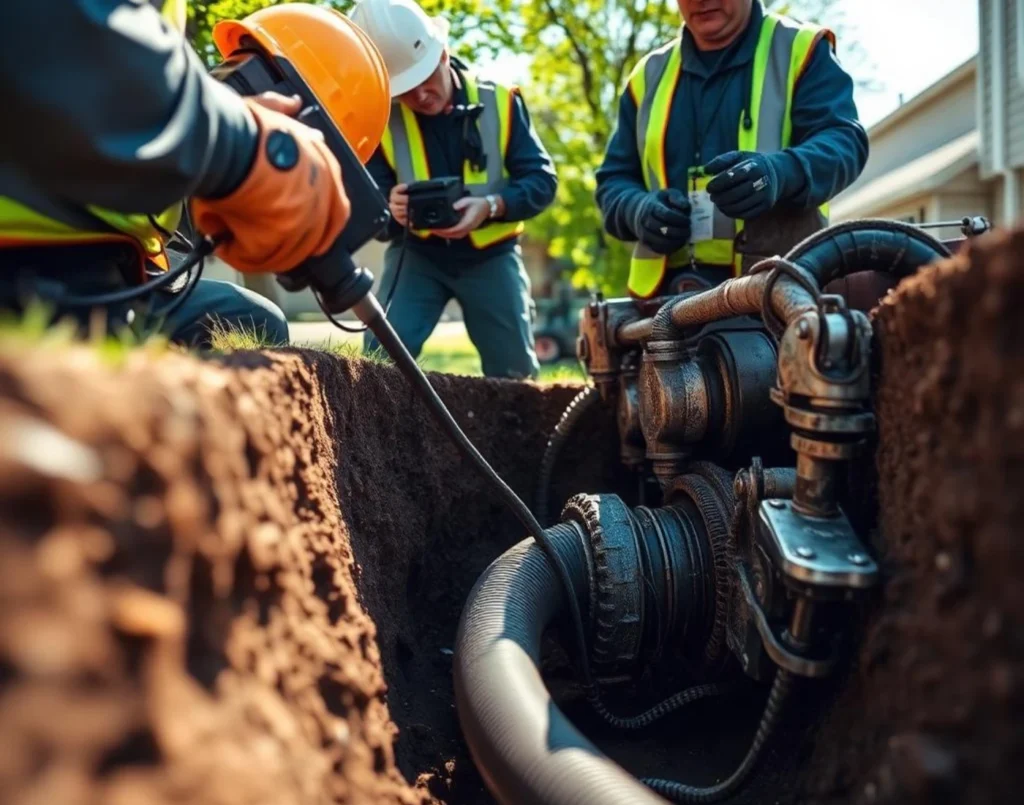Emergency plumbing tips can help you minimise damage and handle plumbing issues effectively. The first few minutes during a plumbing emergency are crucial. If not dealt with quickly, they can cause expensive damage. A burst pipe can flood your home in minutes. An overflowing toilet can also lead to costly repairs. In these situations, the first few minutes are critical. Quick action by homeowners can stop big damage and save thousands on repairs. This guide shows key steps to stop water, reduce damage, and get ready for expert help.
In a plumbing emergency, act quickly to minimise damage. Shut off the main water supply, turn off electricity near leaks, and contain the water with towels or buckets. Avoid DIY repairs unless safe, and document the damage for insurance. Key situations needing fast action include burst pipes, sewage backups, and gas smells. Be ready to provide detailed information to the plumber to ensure a quicker fix.
How to Identify a Plumbing Emergency at Home
Not every plumbing problem needs quick action. However, some warning signs show a serious emergency that must be addressed. Strange water sounds, like gurgling drains or banging pipes when taps are off, can mean trapped air or pressure problems. A sudden drop in water pressure or flow loss can mean burst pipes or blockages. Wet patches on floors, walls, or ceilings may show hidden leaks. These leaks can lead to structural damage. Foul odours, such as sewer smells or musty scents, suggest possible backups or mould growth. Rusty or discoloured water could indicate pollution or rusted pipes. These are signs that you need urgent professional help.
Critical Situations That Need Fast Plumbing Help
Call for emergency service if you experience
- Burst pipes with visible water spraying or pooling
- Raw sewage coming up through drains or toilets
- Complete loss of hot water from your water heater
- Frozen pipes that may crack or burst when thawed
- Gas smells near water heaters or gas-powered fixtures
How to Shut Off Your Main Water Valve Fast
Your first step is to stop the water flow
In a plumbing emergency, first find your main shutoff valve outside the water meter or in the garage or basement. Turn the wheel clockwise or flip the lever to stop the water flow in your home. Next, test nearby faucets to ensure the water is fully shut off. Shut off power at your circuit breaker if water is near electrical outlets or appliances. In addition to preventing any damage, this helps dry up your house before the plumber comes.
Quick Temporary Fixes for Leaking Pipes
- Use temporary fixes to limit water damage until a plumber arrives.
- For small pipe leaks, apply pipe clamps or wrap with waterproof tape to slow the leak.
- Plumbers ‘ putty is used to create a temporary seal for loose joints.
- Wrap them tightly with rubber and secure with hose clamps for cracked pipes.
- These fixes are not permanent, but they can buy you time and prevent further damage.
Steps to Limit Flooding and Water Damage
To prevent major water damage, act quickly. Move furniture and valuables out of the affected area to protect them. Use towels, buckets, and plastic sheets. They can soak up or redirect water from weak areas—open windows to improve airflow and reduce moisture buildup that can lead to mould. Remove any standing water with a wet vacuum or mop. This helps limit further damage and aids in drying your home before the plumber arrives.
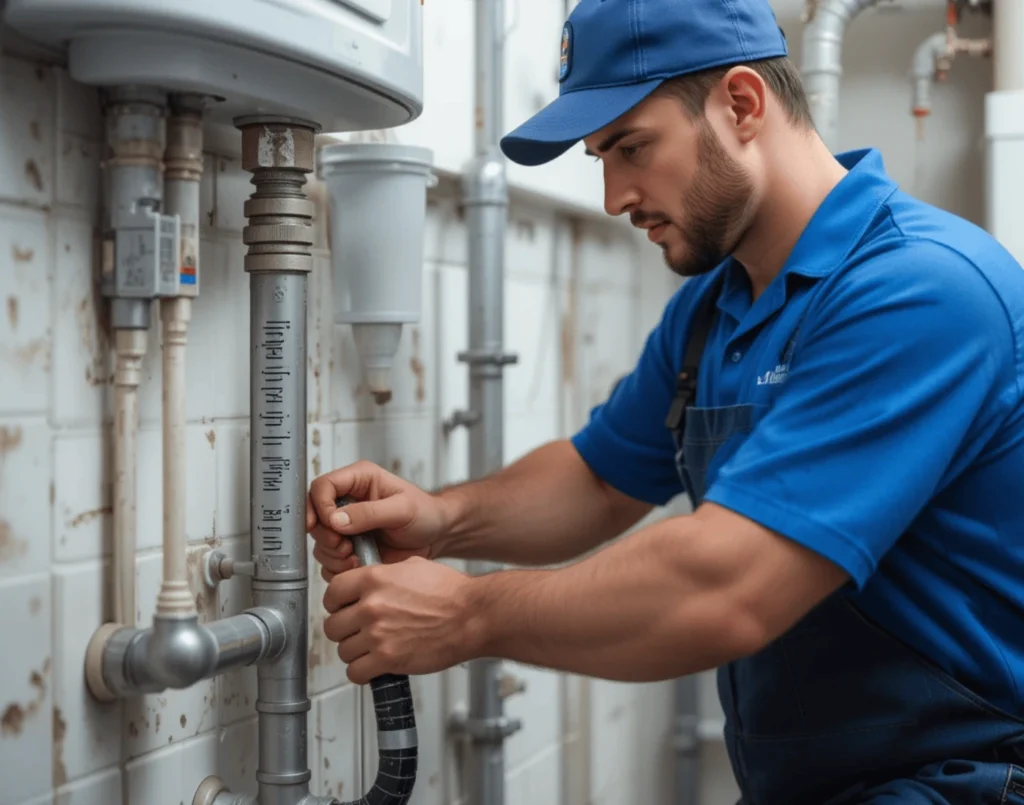
When and How to Shut Off Electrical Power Safely
Water and electricity are a dangerous mix Protect yourself
- Stay away from wet areas with electrical panels or outlets
- Shut off breakers for affected zones
- Use wood or rubber tools if switches are near water
- Shut off the main power if flooding spreads
Why You Should Take Photos of the Damage
Proper documentation plays a key role in successful insurance claims after water damage. Remember to photograph the leak source, damaged areas, and all affected belongings. Take photos before, during, and after cleanup or repair efforts for full coverage. Store all images in cloud storage to keep your evidence safe. This way, you won’t lose anything if your device is damaged or lost.
How to Record Emergency Plumbing Details
Keep a written log to support insurance claims:
- Note when and how the problem was discovered
- Record every action taken and the plplumber’sivalime
- Save repair receipts, estimates, and insurance info
Details to Tell Your Emergency Plumber
Sharing accurate information speeds up plumbing repairs. Describe the problem clearly. Is it a burst pipe, sewage backup, or a persistent leak? Mention any steps you’ve already taken, such as turning off the water or containing the damage. Also, inform the plumber of access issues like locked gates, pets, or blocked entryways. Clear communication ensures the plumber arrives fully prepared and avoids unnecessary delays.
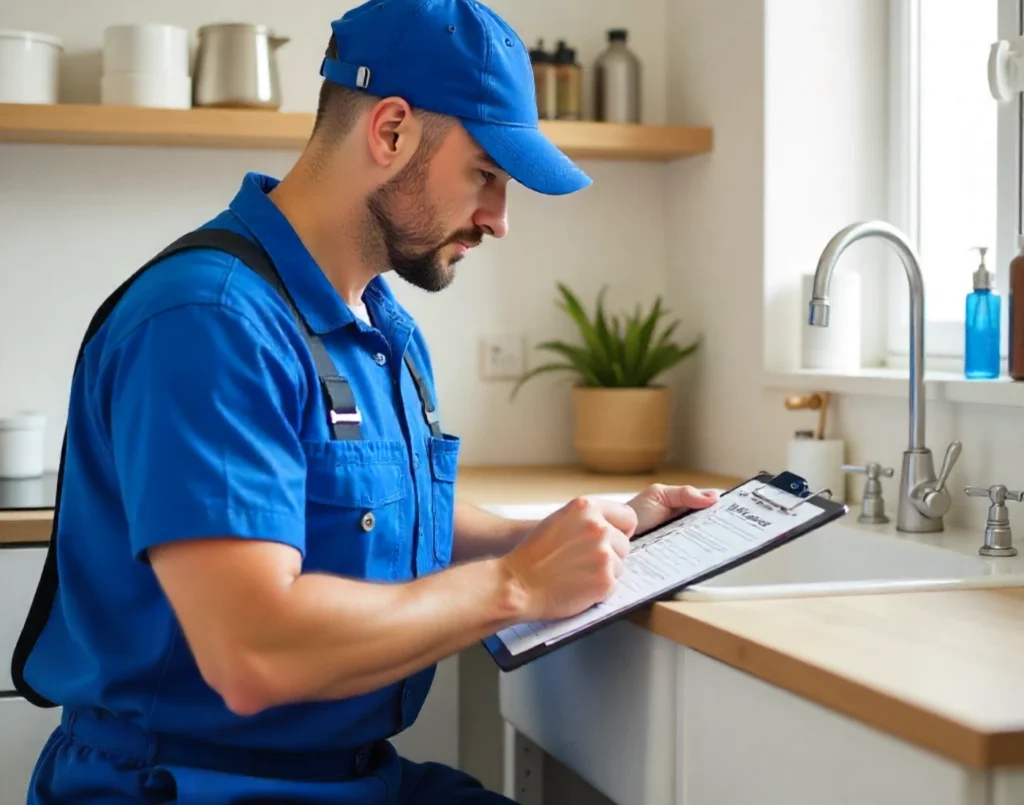
How to Prepare Your Home for Plumbing Repairs
Set the stage for a faster fix:
- Move furniture and clear access to valves or crawl spaces
- Provide good lighting and safe walkways
- Keep pets away from the work area
Ways to Keep Belongings Safe from Water
While waiting for repairs
Protect your belongings while you wait for a plumber. Cover furniture with plastic sheets or tarps to prevent water damage. Move electronics and important documents to a dry, safe area. Store valuables in waterproof containers if possible. These simple actions can prevent permanent damage and save you from costly replacements.
Emergency Plumbing Mistakes You Should Avoid
DIY fixes can make things worse Avoid
Avoid risky DIY repairs in emergencies. Never fix major pipes, water heaters, or gas lines without proper training. Don’t alter structural components; you may hit hidden lines or cause collapse. Guesswork often leads to bigger, costlier damage, leaving complex issues to licensed professionals.
How to Stay Calm During Plumbing Disasters
Panic makes emergencies worse Stay focused
- Stay calm during a plumbing emergency. Keeping a clear mind helps you act effectively.
- Take short breaks if the situation allows, as anxiety can lead to poor decisions.
- Stay hydrated, you’ll think more clearly and respond better under pressure
Final Steps to Be Ready for Plumbing Crises
Taking swift action can significantly reduce the damage caused by plumbing emergencies. First, turn off your water supply, then ensure the area is safe by cutting off electricity near the leak. Act quickly to prevent further damage. Afterwards, contact a professional plumber. Know where your shutoff valves are. Keep this guide close by to help you stay prepared. It could save you thousands in repair costs down the line.
Read Also: Emergency Plumbing Tips: How to Act Fast and Prevent Damage
Frequently Asked Questions
1. What is the best way to unclog a drain?
The most effective way to unclog a drain is by using a plunger to suction boiling water to dissolve grease. You may need a drain snake or a natural solution like baking soda and vinegar for stubborn blockages.
2. Does pouring boiling water down the drain unclog it?
Yes, boiling water can help unclog kitchen sinks by dissolving grease buildup. However, it should not be used with PVC pipes, as high heat could cause damage to the pipes.
3. How do plumbers unblock drains?
Plumbers typically use a drain snake or hydro-jetting to clear stubborn clogs. They may also apply professional–grade chemicals or use cameras to inspect the pipes for underlying issues.
4. What unblocks drains naturally?
Baking soda and vinegar can naturally unblock drains by breaking down grease and food particles. Another natural remedy is salt, which can dissolve clogs caused by soap scum or hair buildup.
5. Can you use too much drain cleaner?
Overusing chemical drain cleaners can damage your pipes and create harmful fumes. It’s best to use them sparingly and rely on natural solutions or professional services for persistent clogs.

